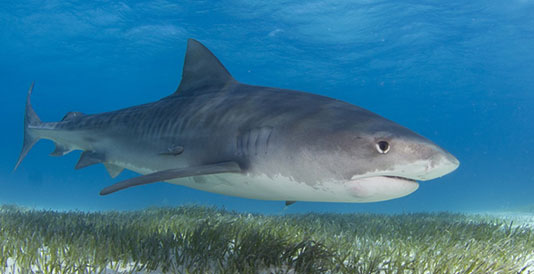 October 12, 2015 - When it comes to mitigating climate change, marine predators could be a key factor. Coastal habitats full of vegetation, including seagrass beds, salt marshes and mangroves, are some of the best absorbers of atmospheric carbon dioxide, according to FIU marine scientists Mike Heithaus and James Fourqurean. Coastal habitats bury carbon 40 times faster than tropical forests. These same habitats are believed to store as much as 25 billion tons of carbon, making them the most carbon-rich ecosystems on the planet. Yet, when the predator population is low, these areas fall victim to overgrazing and sediment disruption. The findings were published this week by Nature Climate Change.
October 12, 2015 - When it comes to mitigating climate change, marine predators could be a key factor. Coastal habitats full of vegetation, including seagrass beds, salt marshes and mangroves, are some of the best absorbers of atmospheric carbon dioxide, according to FIU marine scientists Mike Heithaus and James Fourqurean. Coastal habitats bury carbon 40 times faster than tropical forests. These same habitats are believed to store as much as 25 billion tons of carbon, making them the most carbon-rich ecosystems on the planet. Yet, when the predator population is low, these areas fall victim to overgrazing and sediment disruption. The findings were published this week by Nature Climate Change.FIU News Release
Nature Climate Change Article












